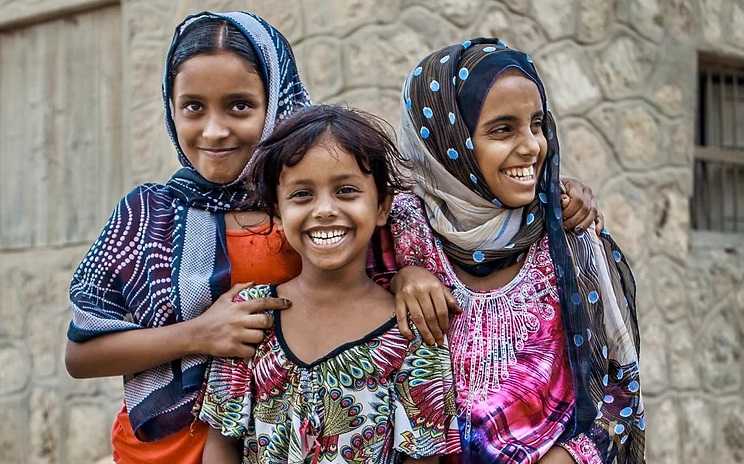MILAN – Announced Monday, July 6th, The Mokha Institute (MI), led by Yemeni coffee pioneer Mokhtar Alkhanshali, is a newly formed licensed non-profit organization focused on revitalizing Yemen’s coffee sector to help the economic recovery of this war-torn country.
Mokhtar is a prominent public figure in Yemeni coffee, largely through the international recognition of Dave Eggers’ acclaimed book The Monk of Mokha, which tells the story of Mokhtar’s perilous journey to found Port of Mokha.
Mokhtar and other experienced teams of coffee professionals aim to revitalize the coffee sector in Yemen while bringing the nation’s coffee to consumers around the world.
About Yemeni Coffee
In 2017, a micro-lot of Yemeni coffee, curated by Port of Mokha, received an exceptional 97-point rating by Coffee Review, an influential website for coffee aficionados. This was an exciting recognition for the nation, which introduced the modern world to Arabica coffee, but has seen its coffee sector decline significantly during the last decades.
In recent years, this decline has been exacerbated by an ongoing five-year armed conflict that has destroyed the socioeconomic fabric of the country and resulted in what the United Nations has characterized as “the world’s greatest humanitarian crisis.”
While companies like Port of Mokha have helped build demand for Yemen’s exquisite specialty coffee, the conflict has curtailed its consistent supply.
The Mokha Institute’s Efforts
As part of its overarching strategy, the Mokha Institute aims to reduce the impact of Yemen’s economic devastation by revitalizing its coffee sector. MI’s start-up strategy for 2020 will address key aspects of production, including training workers and improving access to sustainable sources of water, land, and capital.
The strategy will also launch initiatives that benefit smallholder farmers and that create incentives for new jobs for women and the younger generation. For this purpose, the Mokha Institute will collaborate with partners across the globe on key issues that will require direct technical assistance for Yemen’s coffee value chain and address key issues that influence agricultural, environmental and economic sustainability
Working alongside Mokhtar to bring the Mokha Institute to life will be an experienced group of coffee professionals, including: David Roche, former Executive Director of Coffee Quality Institute; Willem Boot, Founder of Boot Coffee; and Susan Corning, a highly experienced international development expert. This core team will be supported by a global advisory committee and an eventual board of directors.
The goal is to make Yemen’s specialty-coffee sector a catalyst for peace and stability, similar to the USAID-financed Coffee for Peace program in Colombia, which was co-founded by Boot Coffee. This Colombian initiative aims to increase the income of coffee farmers by promoting the sales of fully traceable specialty coffee. Coffee for Peace also includes a comprehensive system for training more than 10,000 participating coffee producers.
The Mokha Institute Launch
The Mokha Institute is initiating a fundraising campaign to jumpstart its critical work with the country’s coffee sector. This stage will encompass the start-up of the institute itself, such as organizational infrastructure development, office, bylaws, board, website, staffing, partner development, communications, and legal expertise. It will also include a focus group and an updated survey with Yemen stakeholders and virtual community events. Additionally, once pandemic-related restrictions are lifted, MI is planning a key stakeholder meeting in Washington, D.C., and local events in the U.S. in collaboration with leaders of the American-Yemeni community. This will enable the implementation of specific initiatives.
After the initial startup, the Mokha Institute has prepared a technical implementation plan for short-term initiatives benefiting Yemen’s coffee sector. This is a two-year commencement plan that will generate success stories and vital information for a long-term strategy that can be integrated with overarching goals like peace and stability, water infrastructure development, youth programs and economic development initiatives. The technical strategy for the 2-year plan will include:
Infrastructure Development
- Redevelopment of a Yemeni coffee association composed of industry experts, researchers, government officials, private sector, and other stakeholders.
- Establishment of a Yemen coffee excellence center. Initially this will be a “virtual” center until the Yemen coffee stakeholders have the will and resources to establish a facility.
- Develop relationships with key institutions in Yemen and internationally to stay abreast of coffee industry best practices, and to remain on the international coffee radar. These will include Sanaa University, Ministry of Agriculture, and many others.
Training Programs
- Immediate training interventions to dramatically increase the productivity and revenues of coffee farmers. Training programs on farming, processing, production, cupping techniques to take place in Ethiopia, Dubai, or safe zones in Yemen.
- Training interventions in collaboration with Sana’a University and international organizations like Cup of Excellence.
Research
- Investigate the needs of basic factors of production including water, irrigation systems, available skilled and unskilled labor, and access to finance.
- Initial research into available data on agronomics, cover crops with international agencies such as CIAT, ICARDA, and others.
- Establish pilot Cup Profiling and DNA fingerprinting. This informational tool or database provides key-buyers of Yemen coffee information on flavor profiles.
Specialty Market Development
- Develop a comprehensive international marketing strategy for the coffee sector.
- Increase Yemen’s presence at trade shows, targeted international events and at coffee competitions and auctions such as Cup of Excellence.
For more information, contact David Roche at david@themokhainstitute.org


















